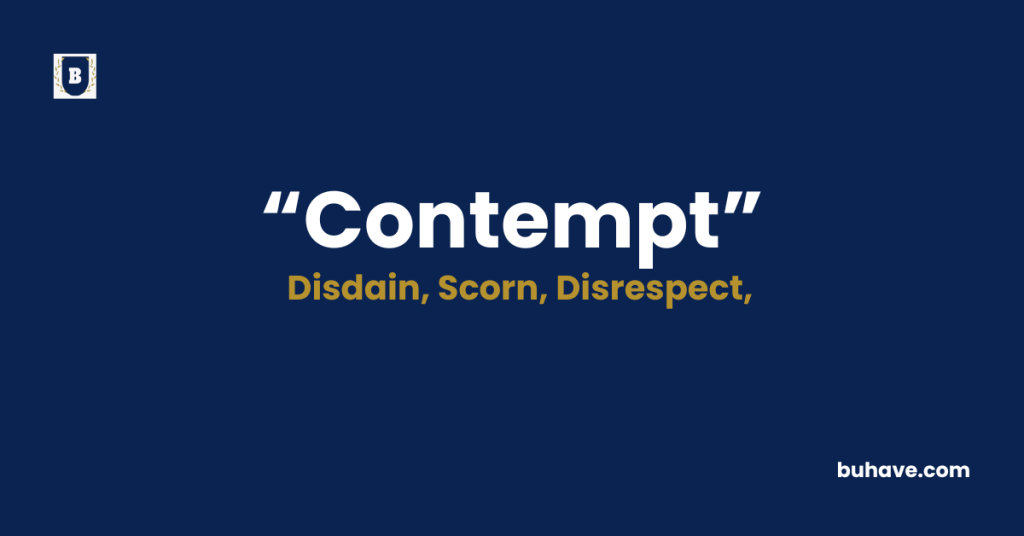The word ‘Contempt’ (Noun) refers to a strong feeling of disrespect or deep disapproval toward someone or something considered inferior, worthless, or deserving of scorn. In this guide, you’ll learn the full definition, synonyms, antonyms, etymology, and real-life examples of how to use ‘Contempt’ correctly in sentences.
Contempt Explained in Depth
A complete and detailed guide to the word ‘Contempt’ including meaning, definition, examples, etymology, synonyms, and antonyms.
Meanings of Contempt
“Contempt” describes a mental attitude of viewing someone or something with disdain, disrespect, or a lack of value. It is often associated with moral or emotional judgment and implies that the subject is beneath notice or undeserving of respect.
Definition
Contempt is defined as the feeling that a person or a thing is beneath consideration, worthless, or deserving scorn. It can also refer to an open disrespect for rules, authority, or the law—especially in legal contexts, like “contempt of court.”
Etymology
The word “contempt” originates from the Latin word contemptus, which means “scorn” or “disdain,” stemming from contemnere, meaning “to despise” or “to scorn.” The prefix con- means “with” and temnere means “to slight” or “despise.”
Example Sentences
- She spoke with open contempt for the corrupt political system.
- His contempt for dishonesty was evident in every decision he made.
- The lawyer warned him that his behavior could lead to a charge of contempt of court.
Contempt Synonyms
- Disdain
- Scorn
- Disrespect
- Derision
- Hatred
- Mockery
- Revulsion
- Disparagement
- Abhorrence
- Loathing
Contempt Antonyms
- Respect
- Admiration
- Approval
- Esteem
- Regard
- Honor
- Consideration
- Affection
- Reverence
- Appreciation
FAQs about Contempt
Here are some frequently asked questions (FAQs) about the word “Contempt”
1. What does “contempt of court” mean?
It refers to behavior that disrespects or disobeys a court’s authority, often resulting in legal penalties.
2. Is contempt always negative?
Yes, contempt inherently carries a strong negative judgment or emotion toward someone or something.
3. Can contempt exist in relationships?
Yes, contempt is a major predictor of conflict and unhappiness in personal relationships, especially when it involves constant criticism or mocking.
4. How is contempt different from anger?
Anger can arise from temporary frustration, while contempt implies long-term disrespect and superiority.
5. Is contempt a legal term too?
Yes, in law, “contempt” can refer to willful disobedience or disrespect toward a court or its procedures.

















